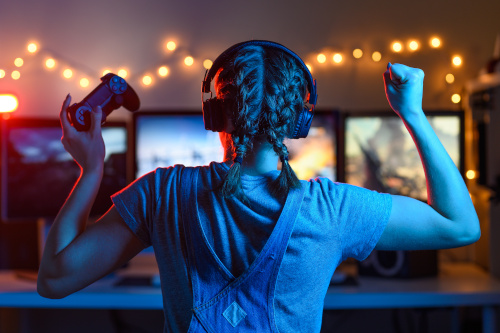
When we started the Orange County High School Esports League as a pilot program in January 2018, there was a lot of skepticism about bringing esports into schools and into classrooms. Based on successes that included increased student engagement and positive classroom and social developments, we expanded to form NASEF, the nonprofit North America Scholastic Esports Federation. There are many school-based esports tournament programs or lesson plans out there, but we emphasize true scholastic esports: intentional learning intertwined with gameplay, whether in the classroom or in an out-of-school program.
NASEF now falls under the even larger umbrella of the World Wide Scholastic Esports Foundation, underscoring a huge attitude shift as educators around the world embrace the concept. That is not to say that there aren’t a few that still need convincing, but most progressive educators are now eager to adopt programs like NASEF’s that are so engaging for students and build both social-emotional and career skills.
These positive outcomes have always been the goal. NASEF’s mission is “to provide opportunities for ALL students to use esports as a platform to acquire critical communication, collaboration, and problem-solving skills needed to thrive in work and in life.” Its vision is “to ensure that ALL students possess the knowledge and skills needed to be society’s game changers: educated, productive, and empathetic individuals.”
Those are lofty objectives for programs centered around video games! To determine their efficacy, the Connected Learning Lab at the University of California, Irvine, has conducted unbiased evaluation of our programs and curriculum, helping NASEF’s team to zero in on aspects of esports clubs and classes that are most beneficial.
A report from the UCI research team says:
For the last three years, our research team has investigated the outcomes of the NASEF program. Our early quantitative and qualitative findings suggest positive outcomes for participating youth in areas such as STEM interest, school affiliation, emotional self-regulation, and positive relationships with adults and peers.

